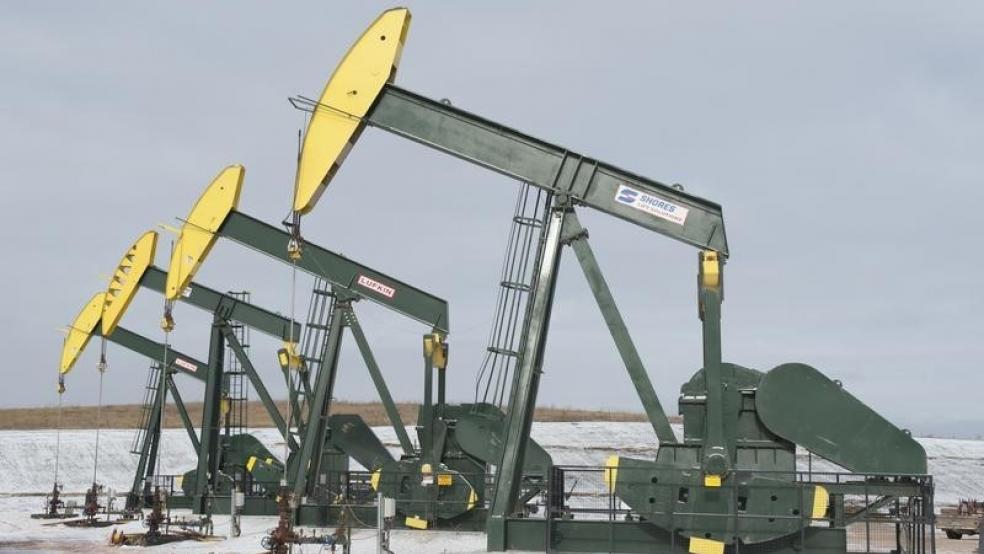Filling up your tank at the gas station has never felt so good, and it’s been a while since reading your utility bill made your blood boil. But while you might be reveling in the benefits of cheap oil, others across the nation aren’t feeling so jolly.
The economies of oil-producing states like Texas, North Dakota, Alaska, Oklahoma, Wyoming and New Mexico are being hit by the plummeting prices of crude. Alaska Governor Bill Walker recently recommended the first state income tax in 35 years to compensate for the steep drop in oil-related tax revenues. As of November 2015, tax revenues in Texas from oil and gas production plunged 48 and 51 percent, respectively. North Dakota saw oil-related tax revenue plummet 43 percent last year.
Related: How Plunging Oil Prices Could Create Economic Upheaval
In the mid-1980s, when the world experienced another oil glut, oil-pumping regions of the country experienced a recession even as the rest of the country was doing well. “It’s likely some of that will happen again this time,” says James Hamilton, a professor of economics at the University of California at San Diego.
Oil companies and workers are paying a price, too. About 17,000 people were laid off at U.S. oil and gas companies last year and the number surges to around 87,000 if oilfield support jobs are included. Since the beginning of last year, 42 North American oil companies filed for bankruptcy protection. And the pain is expected to continue. An analyst at Oppenheimer & Co, Fadel Gheit, told CBS News that as many as half of the independent drilling companies in the U.S. could go bankrupt before prices bounce back.
“We can expect more layoffs coming up as earnings and conference calls for these companies come up in the next few weeks,” says Tom Kloza, co-founder and global head of energy analysis at the Oil Price Information Service.
Hamilton is quick to remind that employees of oil and gas companies aren’t the only people getting hit. He includes ranchers who lease property to oil and gas companies, grocery stores and restaurants that sell to people working on oil patches and realtors who can’t sell property in these former boomtowns, among others.
Other industries, besides oil, are also indirectly taking heat. Kloza uses banks and financial companies as an example. Companies that issue the credit cards people use to purchase their gas take a 3 percent transaction fee, but last year they didn’t collect as much in fees because consumers spent $120 billion less at the pump. “They got $3 billion less in fees. We don’t need to hold telethons for them, but there are a lot of other casualties,” Kloza says.
Related: Why Oil Prices Will Rebound in 2016
Banks also face the added risk of oil companies defaulting on loans for expensive drilling projects. Banks are marking down the value of such loans and upping their loan loss reserves. Bank of America, for example, has about $21 billion in loans outstanding to oil and gas companies and added $264 million to its loan loss reserves. Wells Fargo, with about $17 billion in loans to energy companies, boosted its loan loss allowance by $1.2 billion. And Citigroup built up its reserve for bad oil debt by $300 million. The Standard & Poor’s Ratings Service warned in December that half of all energy junk bonds are at risk of default.
On the bright side, though, oil and gas exposure doesn’t make up a large percentage of loans at big banks and the strict regulations put in place after the financial collapse in 2008 should help protect capital. “This situation is not big enough to cause the financial problems seen in 2008,” Hamilton says.
Another victim of low oil prices has been the housing market. Foreclosures jumped in Texas, Oklahoma and North Dakota last year as job cuts among oilfield workers rapidly grew. RealtyTrac, a real estate information company, found that foreclosures were up 15.7 percent in Texas, 36 percent in Oklahoma and 387 percent in North Dakota. North Dakota still has the lowest rate in the nation, though, because of its tiny population. On the other hand, foreclosure filings at the national level dropped to a nine-year low.
Hamilton says that the benefits of cheap oil still outweigh the negatives. “The bottom line is that it’s a net plus for the U.S. economy when oil prices go down because we’re a net oil importer,” Hamilton says. The money that consumers save from cheap gas is more than what the producers lose from the lower price of oil, he says. But that might be little comfort to the people in oil-producing states.





